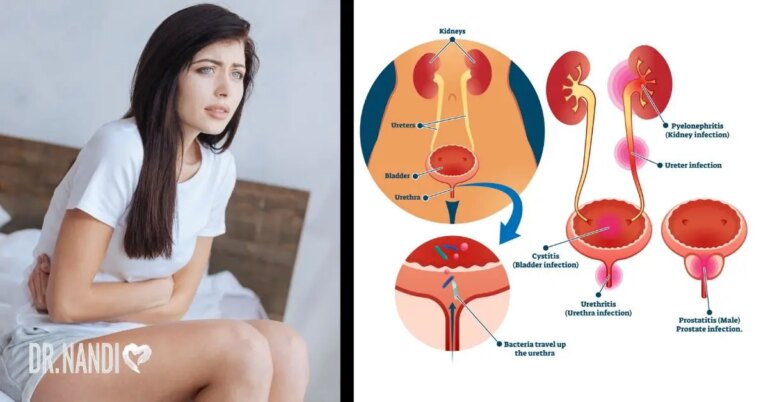Dementia, a condition characterized by a decline in mental ability that hinders daily life, affects a staggering 55 million people worldwide, and the number keeps growing. It is projected to reach 139 million by 2050. [1]
With no known cure for dementia, researchers have been diligently working to identify early signs of the condition to slow its progression and provide support for those affected.
Surprising Link Between Walking Speed and Dementia Risk
A recent study published in JAMA Network Open by international researchers from the US and Australia shed light on an intriguing connection between walking speed and dementia risk. The study followed 17,000 individuals aged 65 and older between 2010 and 2017. The findings revealed that changes in walking speed, along with cognitive decline, may serve as a significant indicator of dementia risk. [2]
According to the study, those who experienced an annual decline in walking speed of 5% or more, coupled with signs of slower mental processing, faced the highest likelihood of developing dementia. Researchers also highlighted a subgroup called “dual decliners” who exhibited both slower walking speed and cognitive decline, further increasing their risk. [2]
Walking speed, a simple yet valuable measure, can reflect changes in various physiological and neurological factors associated with dementia. The study’s results emphasize that slower walking speed may be an early sign of dementia, enabling healthcare professionals to intervene early and potentially slow down the condition’s progression.
Factors Affecting Walking Speed
While walking speed may serve as an indicator of dementia risk, it’s important to remember that several other factors can influence it. Several factors can contribute to changes in walking speed, including age-related declines in muscle strength, coordination, and balance. Neurological conditions such as Parkinson’s and Alzheimer’s disease can also impact an individual’s walking speed.
Additionally, medications, chronic conditions like diabetes or obesity, and lifestyle choices such as smoking and low levels of physical activity can affect walking speed. Furthermore, mental health issues like depression or anxiety can manifest in changes in walking speed.

Hope for Dementia Prevention
While a cure for dementia remains elusive, recent studies have highlighted the effectiveness of preventive measures in reducing the risk of developing the condition. Lifestyle modifications play a pivotal role in dementia prevention. Engaging in regular exercise, maintaining a healthy diet, participating in cognitive stimulation, staying socially engaged, and managing stress levels through techniques like mindfulness meditation have all shown potential in lowering the risk of dementia.
Exercise, in particular, has been extensively studied for its positive impact on cognitive health. Regular physical activity increases blood and oxygen circulation to the brain, reducing the risk of cognitive decline. It also promotes the production of new brain cells and strengthens existing ones.
A healthy diet rich in fruits, vegetables, whole grains, and healthy fats while low in processed and sugary foods — the impact of which on mental health is well-documented — is also crucial for reducing the risk of dementia. Studies have shown that certain nutrients, such as omega-3 fatty acids and antioxidants, play a role in maintaining brain health. [3,4]
Moreover, cognitive stimulation, involving activities like reading, puzzles, and engaging in conversations, helps keep the brain active and may reduce the risk of cognitive decline. [5]
Maintaining social engagement and effectively managing stress through activities like meditation, yoga, and Tai Chi have also been associated with a decreased risk of dementia. [6]
Identifying Early Signs and Symptoms of Dementia
Early detection of dementia is crucial for implementing preventive measures and managing the condition effectively. Dementia is a progressive condition, and its symptoms may manifest gradually over time. Some of the common signs and symptoms include:
1. Memory loss
2. Difficulty with problem-solving or planning
3. Confusion and communication challenges
4. Coordination and motor function difficulties
5. Visual perception problems
6. Mood swings and personality changes
Paying attention to changes in walking speed, as identified in the study, can also serve as an early indicator of dementia. Monitoring and recognizing these signs can prompt individuals to seek medical assistance and make lifestyle changes to support cognitive health.

Preventive Measures: My Personal RX
Taking proactive steps to reduce the risk of dementia is essential for maintaining cognitive health. Consider incorporating the following preventive measures into your daily routine:
- Engage in regular exercise: Aim for at least 150 minutes of moderate-intensity aerobic exercise each week, such as brisk walking, swimming, or cycling.
- Incorporate a healthy sleep routine: Aim for consistent and sufficient sleep each night. When you are well-rested, your cognitive abilities are optimized, allowing for better mental performance. Get your sleep guide here.
- Follow a brain-healthy diet: Consume a diet rich in fruits, vegetables, whole grains, lean proteins, and healthy fats while limiting processed and sugary foods. Including omega-3 fish oil in your diet or as a supplement can help ensure an adequate intake of these essential fatty acids, providing support for brain health and potentially reducing the risk of cognitive decline. I recommend taking my Omega-3 Fish Oil supplements daily.
- Stimulate your mind: Engage in activities that challenge your brain, such as reading, puzzles, learning a new language, or playing musical instruments.
- Stay socially active: Maintain connections with friends, family, and your community through regular social engagements and activities.
- Manage stress effectively: Practice stress management techniques like meditation, deep breathing exercises, and mindfulness to reduce stress levels.
By adopting these preventive measures, you can take charge of your cognitive health and potentially reduce the risk of dementia.
The groundbreaking study linking walking speed to cognitive decline offers valuable insights for identifying early signs of dementia. Recognizing walking speed as a potential indicator empowers individuals to seek timely medical advice and make lifestyle changes. While dementia is a challenge, adopting a healthy lifestyle with exercise, a balanced diet, cognitive stimulation, social engagement, and stress management can help reduce the risk and support cognitive health.
In the fight against dementia, knowledge is power. Stay informed, prioritize your cognitive well-being, and remember that every step you take today can contribute to a healthier future.

References:
- ADI – Dementia statistics. (n.d.). Alzheimer’s Disease International. https://www.alzint.org/about/dementia-facts-figures/dementia-statistics/
- Collyer TA, Murray AM, Woods RL, et al. Association of Dual Decline in Cognition and Gait Speed With Risk of Dementia in Older Adults [published correction appears in JAMA Netw Open. 2022 Jun 1;5(6):e2222274]. JAMA Netw Open. 2022;5(5):e2214647. Published 2022 May 2. https://doi.org/10.1001/jamanetworkopen.2022.14647
- Dighriri IM, Alsubaie AM, Hakami FM, et al. Effects of Omega-3 Polyunsaturated Fatty Acids on Brain Functions: A Systematic Review. Cureus. 2022;14(10):e30091. Published 2022 Oct 9. https://doi.org/10.7759/cureus.30091
- Satizabal CL, Himali JJ, Beiser AS, et al. Association of Red Blood Cell Omega-3 Fatty Acids With MRI Markers and Cognitive Function in Midlife: The Framingham Heart Study [published online ahead of print, 2022 Oct 5]. Neurology. 2022;99(23):e2572-e2582. https://doi.org/10.1212/WNL.0000000000201296
- Woods B, Aguirre E, Spector AE, Orrell M. Cognitive stimulation to improve cognitive functioning in people with dementia. Cochrane Database Syst Rev. 2012;(2):CD005562. Published 2012 Feb 15. https://doi.org/10.1002/14651858.CD005562.pub2
- Harvard Health. (2021, February 15). Protect your brain from stress. https://www.health.harvard.edu/mind-and-mood/protect-your-brain-from-stress



















